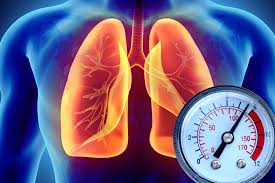Source:myprimetimenews.com
Last month we considered medication timing. Sometimes it is best to take medications when you can best remember them, sometimes when they can best help your symptoms, and sometimes based on scientific data.
The Hygeia Chronotherapy Trial is an example of a scientific study that supports taking medication at a specific time. In the Hygeia Trial, patients took all their hypertension medicine either in the morning or at bedtime. About 19,000 patients participated over a ten year period to help determine if patients would be better off taking their medications in the morning or at night.
Patients with high blood pressure are at increased risk for various forms of heart disease, including heart attack, vascular disease, heart failure and stroke. The study looked at the incidence of cardiovascular events as well as their outcome.
One of the things that made the study so interesting was that going into the study, you could argue either way. Patients tend to remember to take medicines more regularly when they take their medicines in the mornings. When measured, hypertension medicines stay in the body for more than 24 hours, so it shouldn’t matter when you take them as long as it’s about once a day. On the other hand, blood levels of drug are highest shortly after taking them, and many cardiac events occur in the early morning hours, so it might be better to take blood pressure medications at night. It really would have been interesting if pharmacologists and physicians could have wagered on the results.
When the study concluded after more than 10 years, the results were striking. Patients taking their blood pressure medications at night fared better than those taking the same medications in the morning. Patients taking blood pressure medications at night had slightly lower blood pressure readings throughout the day and at night. Surprisingly, those taking blood pressure meds at night also had slightly better cholesterol readings. While the results differed statistically, they appeared small and it was hard to see how they could have any profound affects long term.
We have to recognize that scientists and the media can benefit from making results sound more important than they are. One of the ways that pharmacists and other medical professionals will evaluate results like the Hygeia Trial is by how many patients will need to change their medication schedule to cause one person to be affected. For the Hygeia Trial, the results indicate that over the first two years, one cardiovascular event – a heart attack, stroke, angina, peripheral artery disease or transient ischemic attack – is avoided for every 20 patients taking their blood pressure medications at night instead of in the morning.
